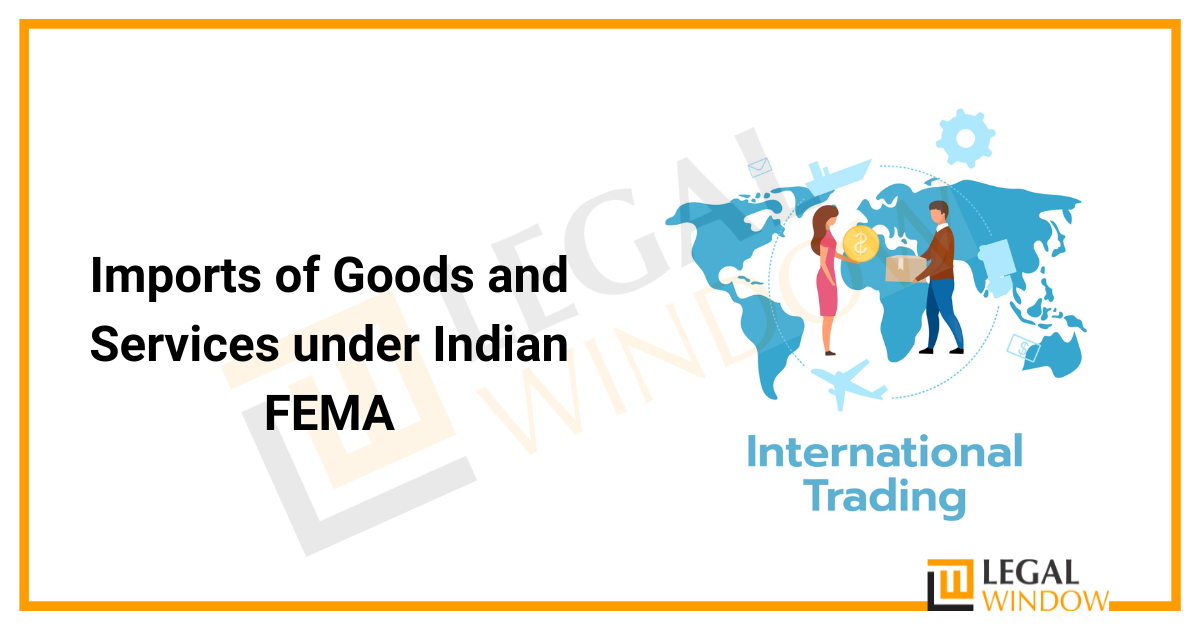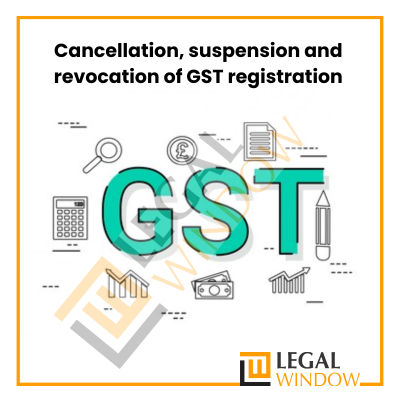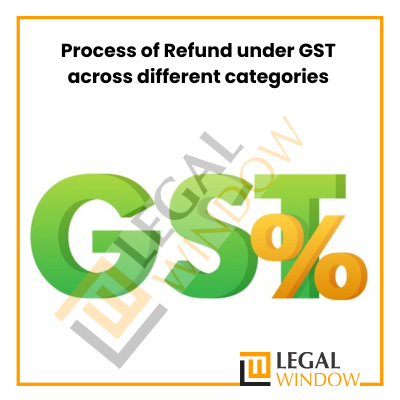
Importing is the process of bringing commodities into a certain country. Importation can take place by land, air, or water. The Government of India, Customs Officers, and Border Forces impose many limitations on importing products into the nation. Goods brought into the nation would be permitted as long as they complied with the appropriate import rules. Several limitations apply to items imported into a nation. Certain types of items are restricted from entering the nation. As a result, it is critical for the importer and seller to comply with the regulations governing the import of commodities into the country. Compliance with FEMA legislation for the import of products must be maintained by the importer and the parties involved.
Important terms for Imports of Goods and Services under Indian FEMA
One should understand the following terms for clear understanding of Imports of Goods and Services:
- Importer – An importer is a person or organization who brings items into the country from another country. An importer might be an individual living in India or a company formed under Companies Act, 2013.
- Seller/Foreign Seller – A seller is someone who sends imported items in return for payment from the importer. Sellers are individuals residing outside of India or companies headquartered outside of India or Foreign Companies.
- Outward Remittance – Funds transmitted from the importer to the seller using standard banking channels via an authorized bank or authorized dealer.
- Authorized Dealer (Category-I) – The Authorized Dealer, often known as the Authorized Bank, is the person in charge of transactions involving the importation of commodities into the nation. This bank handles tasks including sending and receiving remittances on behalf of the importer.
Importing Institutions dealing with Import of Goods and Service under FEMA
Under FEMA Law, many entities handle the import of products. The Directorate General of Foreign Trade is the key entity in charge of goods imports (DGFT). This organization is part of the Ministry of Commerce & Industry, the Department of Commerce, and the Government of India.
This nodal institution regulates the import of products under FEMA legislation. This authority’s regulations are distributed to authorized dealers and importers. The Indian government has issued the Foreign Trade Policy (FTP), which applies to all approved dealers and importers. Goods imported into India must adhere to the Foreign Trade Policy (FTP) (the ‘Policy’). The Indian government modifies its international trade strategy on a regular basis. Foreign Trade Policy amendments must be followed by authorized dealers and importers. This strategy was implemented by the Indian government in 1992. The policy is in effect for five years. The government would explore future changes to this policy every five years.
Before engaging in import-related operations in India, authorized banks must confirm that importers are in compliance with the Foreign Trade Policy. The Foreign Exchange Management Act, 1999 governs the entry of products into India (FEMA). Aside from that, products imported under FEMA regulations would be subject to the Foreign Exchange Management (Current Account Transactions) Rules, 2000.
The Reserve Bank of India oversees the country’s foreign exchange management. As a result, the Authorized Dealer must likewise follow the RBI’s foreign exchange requirements.
Import Transactions Procedure/Process- Import of Goods and Services under FEMA
Under FEMA Law, there is no specific method for import transactions or products import. Certain rules must be observed when transactions are done on behalf of importers. In the absence of particular restrictions, authorized banks would be subject to conventional banking conditions. Banks, on the other hand, must be cautious when it comes to doing background and KYC (Know Your Client) checks on their consumers.
- Outward Remittances for Imports- FEMA Import of Goods and Services: When items are brought into the nation, authorized dealers/banks allow remittances to be made. However, before proceeding with the transaction, the importer must ensure that all compliances have been met. Remittances must be made for legitimate transactions.
- FEMA Import License- Import of Goods and Services: Under FEMA Law, import licenses would be necessary for the import of products. According to the Foreign Trade Policy, many kinds of items are restricted. Goods with no limitations would be permitted to be brought into the nation. Authorized merchants can do this by opening letter of credit (LOC) and allowing remittances for imports. When the approved bank prepares a letter of credit, copies of the import license should be included. This is necessary for the purposes of exchange control. The approved bank must keep a copy of the letter of credit and the import license on file for inspections and internal audits.
- Foreign Exchange Requirements- FEMA Import of Goods and Services: Individuals who purchase foreign exchange must comply with the rules of the Foreign Exchange Management Act, 1999. The individual’s foreign exchange can be utilized in accordance with the statement made in the declaration form given by the Authorized dealer. Aside from that, the individual may only utilize the foreign exchange for legitimate purposes.If the individual uses foreign currency to import items into the nation, the approved bank must ensure that the importer publishes some receipts or documentation of the transaction. The importer must provide this information in the Import Data Processing and Monitoring System (IDPMS), Postal Appraisal Form, and Customs Assessment Certificate. The importer and the approved bank must both agree that the remittance is equal to the amount of the imported items.
- System for Import Data Processing and Monitoring (IDPMS): The RBI, in collaboration with other organizations, simplified and developed this system. This system’s primary goal is to improve the efficiency of import processing transactions. Aside from that, this technology allows for effective monitoring of import transactions. Authorized banks must ensure that all import remittances are posted to the IDPMS.
Mode of Payment under FEMA Law for Import of Goods and Services
An individual in India might be a products importer. The following requirements must be met in order for the payment to be made:
- Individual holds an international debit/credit card in rupees.
- Payments made by credit/debit card through an Indian service bank;
- The importer must provide the bank with a charge slip; and
- Transactions must adhere to the appropriate Foreign Trade Policy.
Individuals may also make payments in rupees:
- For boarding and lodging expenses, as well as travel expenditures for an individual residing outside of India. These costs will also cover travel to and from India for the individual residing outside of India.
- A crossed cheque or a draught can be used to make payment. These ways of payment are available for gold or silver acquired outside of India. The Foreign Trade (Development and Regulations) Act, 1992 governs the acquisition of gold and silver.
- A company can make a payment in rupees to a non-full-time director who is located outside of India. The payment might be paid while the director is in India on business. However, the corporation must pay the director sitting fees, commissions, and salaries, which includes travel expenses to and from India. These ways of payment must be in accordance with the company’s Memorandum of Association or Articles of Association, as well as any agreement or resolution made by the shareholders.
Payment Settlement Period under FEMA Law
Payments made by the importer for imports through the designated bank must be made within six months of the items’ shipping. This would not apply in circumstances where payments are withheld as a type of assurance for the service’s performance. If there are delays in making the payment, the approved bank will allow the settlement of import dues. Such delays are caused by the importer’s legal battles and financial concerns. If these invoices are subject to interest, payment of interest is only permitted for three years. This would be three years from the date of import shipping.
There are also time constraints for postponed payments. The postponing of payment of an outstanding debt is known as deferred payment. When it comes to the timing of payment, postponed payment receives differential treatment. Such postponed payments are permitted for a period of five years.
Time Extension under FEMA Law
Under FEMA law, time can be extended for the import of products in a variety of scenarios. Authorized banks often allow six months to complete remittances for an import transaction. However, in some cases, the duration is extended to three years. Time can be prolonged in the following cases:
- Dispute resolution between the seller and the importer;
- Action brought by the importer against the vendor;
- The Import’s Quality;
- Non-compliance with the contract; and
- The importer is experiencing financial troubles.
However, an approved bank will never extend the time for more than three years. When an approved bank extends the period for an import transaction, the following must be taken into account:
- The Directorate of Enforcement, the Central Bureau of Investigation, or any other investigative authorities have no authority over the import transaction.
- The total amount that the importer must pay cannot exceed USD 1 million or 10% of the average import remittances for the previous two fiscal years.
- When an authorized dealer grants such an extension, it must be disclosed.
Any such instances that are not covered by the preceding provisions will be reported to the RBI.
FEMA Application for Payment in India for Import of Goods and Services
When an applicant wishes to import products into India, an application must be submitted. A person, company, or partnership wishing to import products into India must complete Form A1. This form is for remittances and the transfer of rupees to non-resident Indian bank accounts. The applicant must be thorough when filling out the form.
FEMA Third-Party Payment for Import of Goods and Services
Payments from the Authorized Dealer may be received by a third party. However, certain circumstances must be met in order for this to happen:
- The three parties must reach an agreement (tripartite agreement). The importer, the Third Party, and the Authorized Dealer are the parties involved. This is not necessary if the invoices are issued in the name of a third party. As a result, if the parties have adequate documentary proof, there is no need for any kind of tripartite agreement between them.
- Before entering into the transaction, the bona fides of the transaction must evaluate the Financial Action Task Force Statement.
- The invoice must include a statement stating that payment must be made by the third party.
- Where there are bills of entry, the third-party payment details, as well as the shipper’s name, should be included.
- Importers must follow all applicable requirements while importing products.
As a result, under FEMA Law, a third party might be paid for the import of products. However, before engaging into the transaction, the parties must meet the requirements listed above.
FEMA Interest Charged on Bills of Import of Goods and Services
Authorized banks are permitted to charge interest on invoices received. Such interest would be levied in accordance with the standard interest clause. This interest can be charged without the RBI’s previous consent. The typical interest clause refers to the prime rate at which interest is levied.
Import Evidence in Import of Goods under FEMA
The following evidences should be present in Import of Goods and Services under FEMA:
- When remittances exceed USD 5000, or their equivalent, the authorized dealer must guarantee that the importer sends the following:
- A copy of the Bill of Entry’s Exchange Control;
- When there are 100 percent Export Oriented Units, a copy of the warehouse’s exchange control must be supplied.
- The importer must declare to the customs authorities a Customs Assessment Certificate or a Postal Appraisal Form. This would be relevant if the items are imported by post and as proof that the commodities are imported into India.
- The importer must also ensure that all foreign exchange obligations have been met.
- When importing software or data, a report or certificate from a chartered accountant stating that the programme or data has been received by the importer is necessary.
- Remittances made via courier services have various requirements:
- The authorized dealer must present the exchange control copy of the bill of entry if the remittance is one lakh rupees or higher.
- Where the remittance is less than one lakh rupees, the authorized dealer must get a copy of the entry bill from the importer, as well as the customs declaration form and the form given by the courier business.
- Authorized dealers must ensure that the importer’s proof is properly checked.
- In all situations, authorized dealers must preserve a copy of the documentation of import. An acknowledgement must be provided in the importer’s name, providing the following information:
- Name and complete address of the importer
- The import license number, as well as the date of import;
- A bank reference for a letter of credit;
- Details about the imported items; and
- Exchange Control Copies, Postal Forms, and Customs Copies
- Inspectors and auditors will examine the records held by approved dealers.
- Documents must be kept by authorized dealers for one year from the date of verification. If the records are being investigated, they must not be destroyed.
Under FEMA, the following documentation is necessary for the import of products. The importer and the approved bank are required by FEMA Law to follow the aforementioned requirements regarding the import of products.
Endnote
Importing refers to the process of importing commodities into the country. Various requirements must be followed by the parties involved in an import transaction. The Authorized Dealer must follow the Foreign Trade Policy and the RBI standards for performing import transactions. There is no set method for bringing goods into the nation. The importer must transmit funds to the vendor via the designated bank. The items are supplied to the importer once the vendor gets payment. There are several considerations that the importer must keep in mind when accepting imports. The approved dealer is responsible for overseeing the importation procedure. As a result, an importer must follow special procedures for import of goods and services under FEMA.
LegalWindow.in is a professional technology driven platform of multidisciplined experts like CA/CS/Lawyers spanning with an aim to provide concrete solution to individuals, start-ups and other business organisation by maximising their growth at an affordable cost. Our team offers expertise solutions in various fields that include Corporate Laws, Direct Taxations, GST Matters, IP Registrations and other Legal Affairs.
Categories
- Agreement Drafting (23)
- Annual Compliance (11)
- Change in Business (36)
- Company Law (147)
- Compliance (88)
- Digital Banking (3)
- Drug License (3)
- FEMA (17)
- Finance Company (42)
- Foreign Taxation (6)
- FSSAI License/Registration (14)
- GST (116)
- Hallmark Registration (1)
- Income Tax (199)
- Latest News (34)
- Miscellaneous (164)
- NBFC Registration (8)
- NGO (14)
- SEBI Registration (6)
- Section 8 Company (7)
- Start and manage a business (20)
- Startup/ Registration (126)
- Trademark Registration/IPR (40)
Recent Posts
About us
LegalWindow.in is a professional technology driven platform of multidisciplined experts like CA/CS/Lawyers spanning with an aim to provide concrete solution to individuals, start-ups and other business organisation by maximising their growth at an affordable cost.








